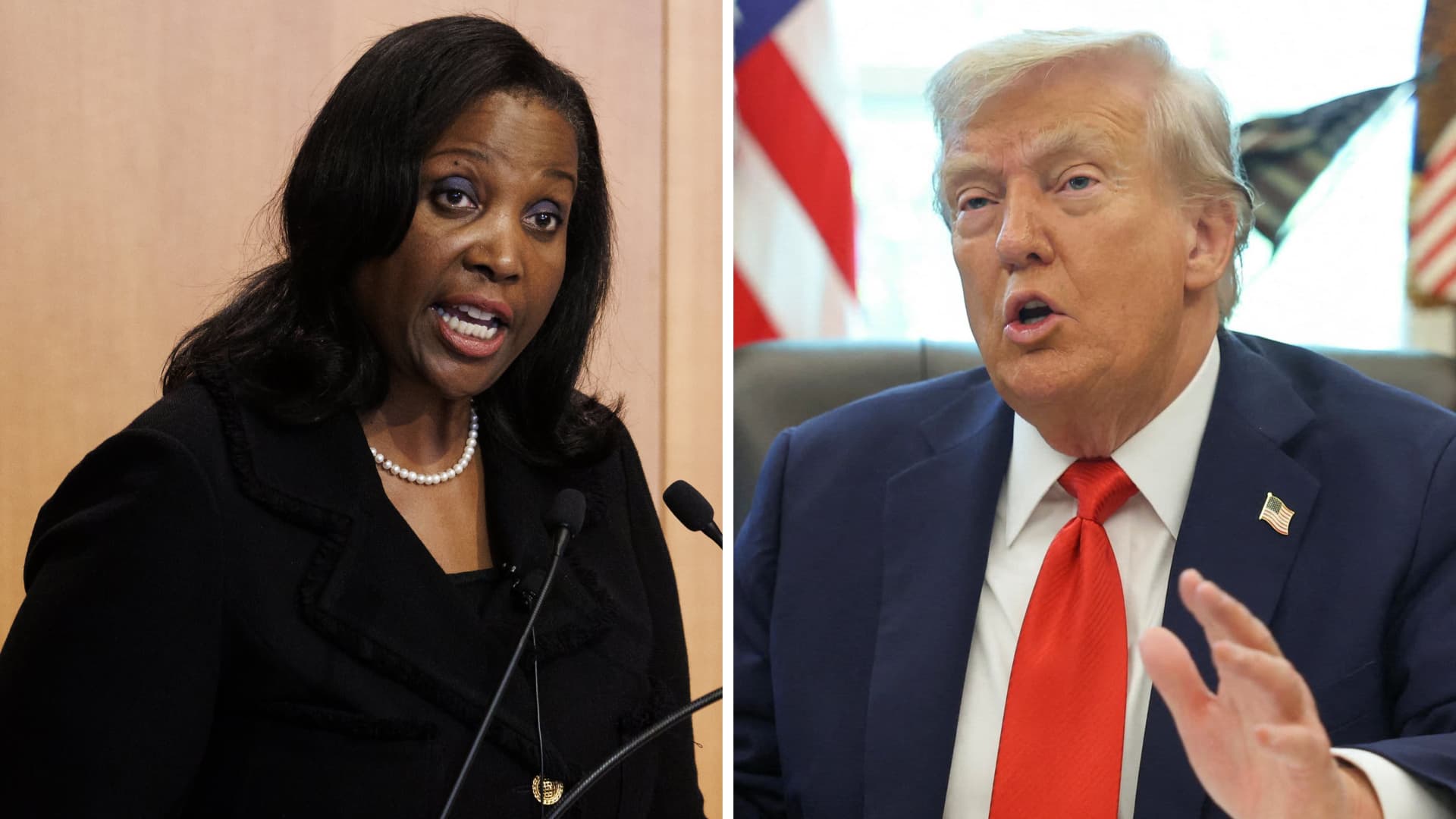President Donald Trump sent shockwaves through global markets Monday night by saying he would fire Federal Reserve Board Governor Lisa Cook.
Trump’s decision not only put investors and economists on alert, but brought attention to the complicated innerworkings of the U.S. central bank. It also marks the latest escalation of Trump’s monthslong pressure campaign against the Fed, historically politically independent, to lower interest rates.
Here are the key facts to know:
Why do we follow the Federal Reserve?
The Federal Reserve manages monetary policy for the United States. Its dual mandate, set out in a 1977 act of Congress that amended the Federal Reserve Act, is to maximize full employment and ensure stable prices. Because the U.S. is home to the world’s largest economy, the 111-year-old central bank also helps set the economic tone for all other developed as well as emerging markets. The Fed also supervises and regulates banks and their financial activities through a series of examinations, stress testing and corrective actions, and attempts to identify and mitigate systemic risks.
A 12-person group within the Fed called the Federal Open Market Committee, or FOMC, sets the key overnight borrowing rate, currently set at 4.25% to 4.50%. The fed funds rate is the target interest rate that banks charge each other for overnight loans to meet their reserve requirements, and helps set the cost of home mortgages, car loans and credit card debt. The FOMC holds regularly scheduled meetings at least eight times a year.
Who is Lisa Cook?
Cook, the first African-American woman to sit on the Fed, has served as governor since 2022, according to her bank biography. Reappointed the following year, her 15-year term is due to expire in 2038.
Before joining the Fed, Cook was a professor of economics and international relations at Michigan State University. A holder of a PhD in economics from the University of California, Berkeley, Cook was previously director of the American Economic Association Summer Training Program, a research associate at the National Bureau of Economic Research, on the faculty of Harvard University’s Kennedy School of Government and a national fellow at Stanford University.
From 2011 to 2012, Dr. Cook served as senior economist on the Council of Economic Advisers under President Barack Obama.
What is a Fed governor?
The Fed’s Board of Governors consists of seven members who are appointed by the president and confirmed by the Senate. The governors are considered the core of the institution and are permanent members of the closely-watched FOMC. The other five voting members of the FOMC consist of the President of the Federal Reserve Bank of New York, a permanent member, and a rotating cast of four Reserve Bank presidents.
Why is Trump firing her? Has she responded?
In a social media post, Trump cited allegations that Cook made false statements on mortgage applications. Cook responded by saying he did not have the authority to fire her and that she would sue.
The Fed said in an official statement on Tuesday afternoon that it would abide by any court decision governing the legality of Cook’s firing. Although the president can fire a Fed governor “for cause,” the law doesn’t exactly define what that means. The case is expected to wind up before the Supreme Court.
Is there a secondary motive?
While Trump cited the mortgage issue, the move to fire Cook also comes amid his push for the Fed its key borrowing rate. Earlier this summer, Trump floated the idea of firing Fed Chair Jerome Powell, who he has repeatedly blamed for keeping rates unchanged since late last year.
Trump may get his wish: Fed funds futures are pricing in a more than 89% likelihood that the central bank cuts rates at its next policy gathering in September, according to the CME FedWatch tool. That market assessment, however, is based more on a weak July labor report and downward revisions to job growth in May and June, rather than political pressure from the White House.
What has the market reaction been?
Following a trend in place since Trump resumed office in January, investors largely shook off any immediate concern that politics would intrude on monetary policy. Stocks rose on Tuesday.
But signs of concern showed up in other areas. An index tracking the U.S. dollar against a basket of foreign currencies slid on Tuesday as investors looked to international alternatives. Gold — traditionally regarded as a safe store of value in times of rising inflation — rose in reaction to the White House move.
What’s the dispute mean for Main Street?
Everyday Americans won’t feel immediate impacts from Trump’s decision on Cook. But it could have longer-term ramifications for economic policy.
If Trump is able to remove Cook, it would create an opening to appoint an FOMC governor likely to vote in favor of lower interest rates.





